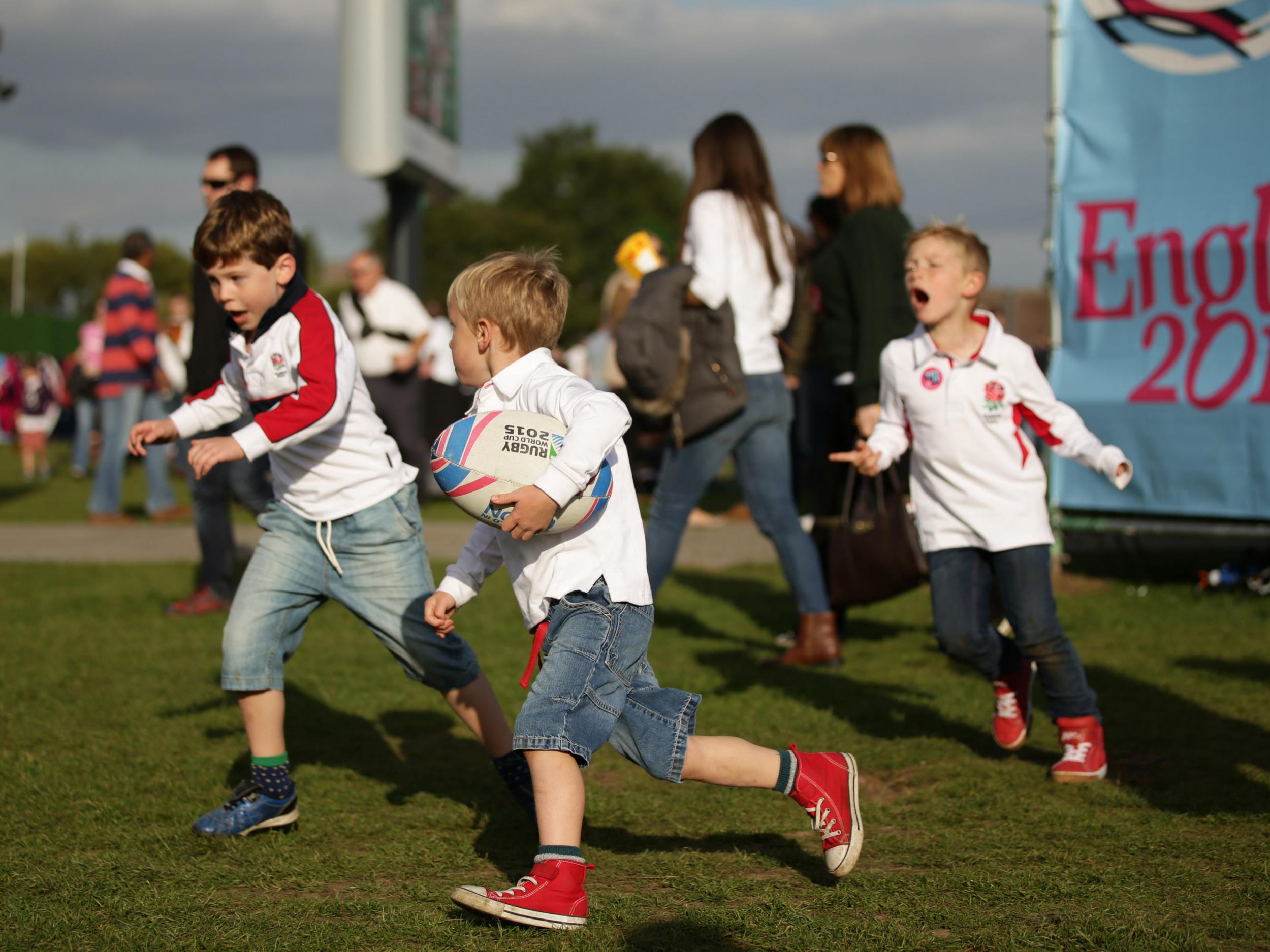Academics call for tackles and scrums to be banned from school rugby games
Put children's interests ahead of corporate rugby unions', urge researchers

Your support helps us to tell the story
From reproductive rights to climate change to Big Tech, The Independent is on the ground when the story is developing. Whether it's investigating the financials of Elon Musk's pro-Trump PAC or producing our latest documentary, 'The A Word', which shines a light on the American women fighting for reproductive rights, we know how important it is to parse out the facts from the messaging.
At such a critical moment in US history, we need reporters on the ground. Your donation allows us to keep sending journalists to speak to both sides of the story.
The Independent is trusted by Americans across the entire political spectrum. And unlike many other quality news outlets, we choose not to lock Americans out of our reporting and analysis with paywalls. We believe quality journalism should be available to everyone, paid for by those who can afford it.
Your support makes all the difference.Schools should ban “harmful contact” from rugby games, experts have said.
In a new opinion piece published in a leading medical journal, academics said that tackles and scrums should be prohibited on school playing fields.
Allyson Pollock and Graham Kirkwood from the Institute of Health at Newcastle University argue that most injuries in youth rugby occur due to the collision elements of the game.
Writing in the British Medical Journal (BMJ), they said that ministers should “put the interests of the child before those of corporate professional rugby unions”.
Removing collision from school rugby is likely to “reduce and mitigate the risk of injury” in pupils, they said.
They argue that a history of concussion is associated with the “lowering of a person's life chances” across a number of measures including low educational achievement and premature death. Meanwhile, a head injury is linked to an increased risk of dementia, they added.
Citing previous research into sports injuries in youngsters, the pair argue that rugby, along with ice hockey and American football, have the highest concussion rates.
They said that rule changes in collision sports can “make a difference”, highlighting the Canadian ban on 'body checking' – where a player deliberately makes contact with an opposing player – in ice hockey for under 13 year olds.
Meanwhile, the evidence for other strategies to reduce concussion risk in contact sport – such as mouth guards – is “weak”, the article adds.
And in the UK “teacher training in the skills of rugby are lacking, as is concussion awareness training,” the pair wrote.
The researchers called on the UK chief medical officers to advise the UK Government to remove “harmful contact” from the game.
In 2016, the nation's most senior medics rejected a call for a ban on tackling in youth rugby.
But Professor Pollock, who has been researching injuries and rugby injuries for more than ten years, and senior research associate Mr Kirkwood said that under United Nations conventions, governments have a “duty to protect children from risks of injury”.
“We call on the chief medical officers to act on the evidence and advise the UK government to put the interests of the child before those of corporate professional rugby unions and remove harmful contact from the school game,” they wrote.
“Most injures in youth rugby are because of the collision elements of the game, mainly the tackle.
“In March 2016, scientists and doctors from the Sport Collision Injury Collective called for the tackle and other forms of harmful contact to be removed from school rugby. The data in support of the call is compelling.”
Commenting on the article, Professor Tara Spires-Jones, UK Dementia Research Institute programme lead and deputy director of the Centre for Discovery Brain Sciences at the University of Edinburgh, said: “Very strong, reproducible evidence supports a greater risk of dementia in people who have head injuries in their lifetimes, which urges caution in games where there is a significant risk of head injury.
“However, the data on specifically whether playing rugby or other contact sports in school increases your risk of dementia are not as robust yet due to a lack of large prospective studies. It is also very clear that there are many health risks of leading a sedentary lifestyle.”
A Department for Education spokeswoman said: “Schools have the flexibility to offer a diverse PE curriculum which suits the needs of their students.
“We expect schools to be aware of all of the risks associated with sporting activities and to provide a safe environment for pupils.
“There is expert advice available for schools on how to manage activities safely and reduce the risk of injuries and accidents. On top of this, staff should be given the information and training they need to manage risks effectively.”
Press Association
Join our commenting forum
Join thought-provoking conversations, follow other Independent readers and see their replies
Comments